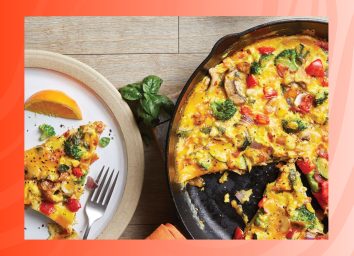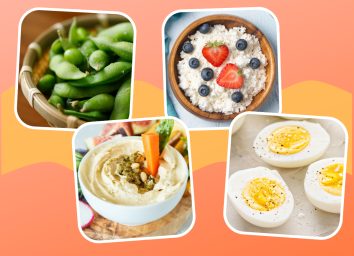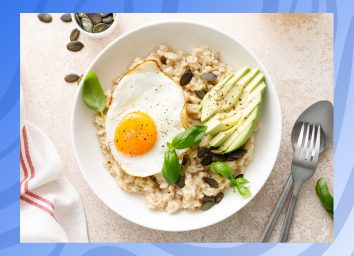Eating Habits to Avoid if You Don't Want a Heart Attack, Say Experts
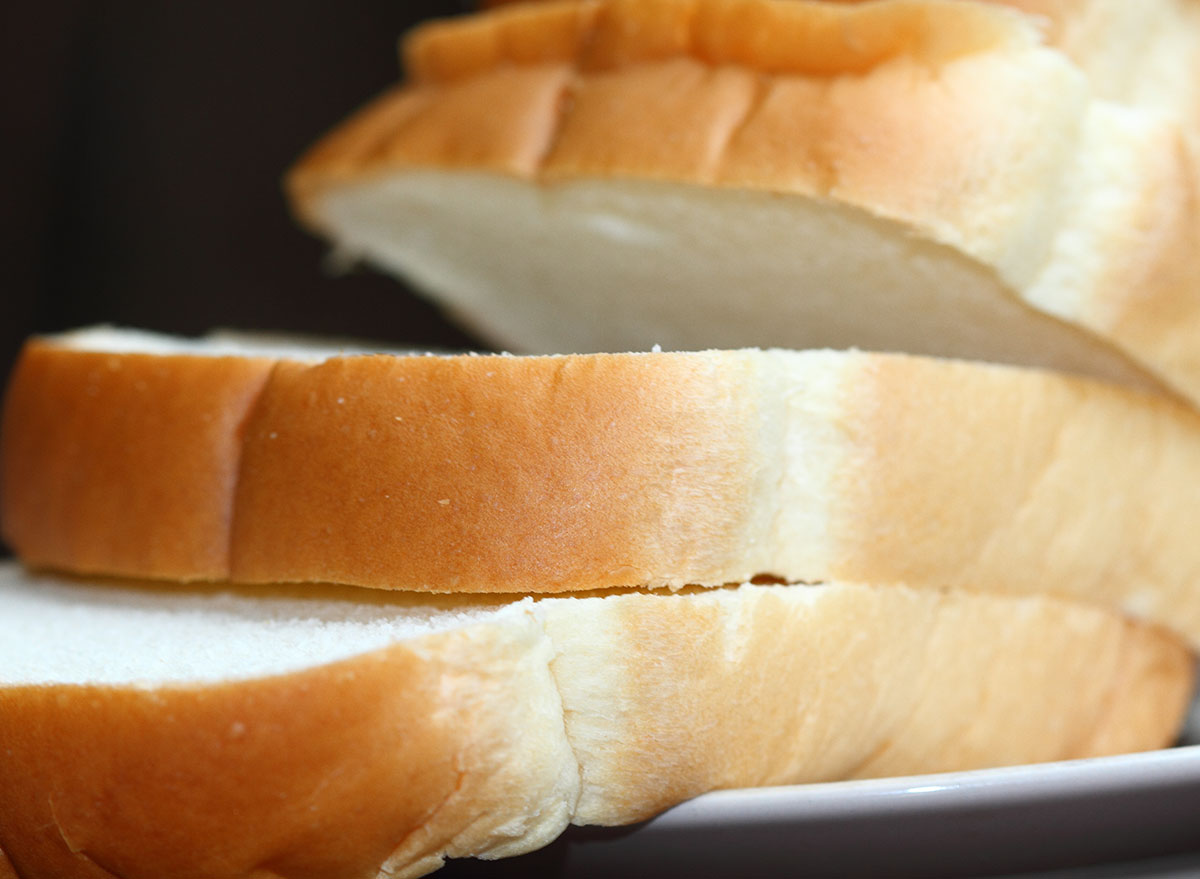
Suffice it to say, no one wants to have a heart attack. And while we know that exercise and eating heart-healthy foods such as leafy greens and whole grains can help keep the pivotal muscle in tip-top shape, there are also several eating habits to avoid if you want what's best for your heart.
Since the heart has several arteries which help it receive its own blood supply, it should come as no surprise that quite a few of these habits are related to the consumption of fat, which can lead to blockages in these crucial pathways.
"If you don't want to have a heart attack, it is wise to stop eating a high-fat diet," says Trista Best, RD, a registered dietitian at Balance One Supplements. Best explains that one particular type of fat, saturated fat, is commonly solid at room temperature, "leading to their increased risk for causing chronic illnesses like heart disease."
As Best also points out, heart disease is one of the main diseases associated with a diet high in red meat. "This is because of the meat's high saturated fat content which leads to an increase in cholesterol and artery blockages along with triglycerides," she explains.
Other habits to keep in mind in order to help prevent a heart attack include controlling your portion sizes and monitoring your salt intake. Keep reading for additional info from experts on habits to avoid if you want your heart to stay healthy, and for more on how to eat healthy, don't miss 7 Healthiest Foods to Eat Right Now.
Stop regularly consuming fried foods.
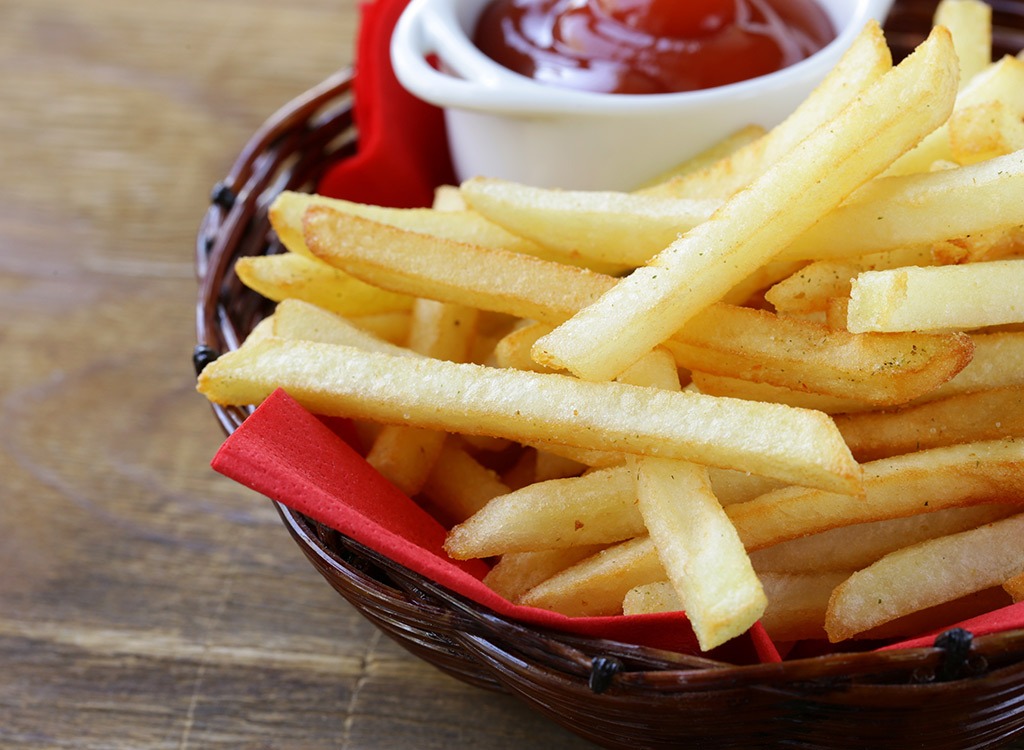
According to Mary Wirtz, RD, a registered dietitian and a nutritional consultant for MomLovesBest, if you don't want to have a heart attack, lay off the fried foods. "Research has found that regularly consuming deep-fried foods raises your relative risk for coronary heart disease by 22%, stroke by 37%, and heart failure by 37%," she notes.
"Foods such as deep-fried donuts, fish, fries, chicken wings, onion rings, cheese curds, among many others, all fall within this category to avoid. Furthermore, there has been outstanding research related to deep-fried food consumption and increased risk for type II diabetes, obesity, and hypertension."
Don't go overboard when it comes to portion size.
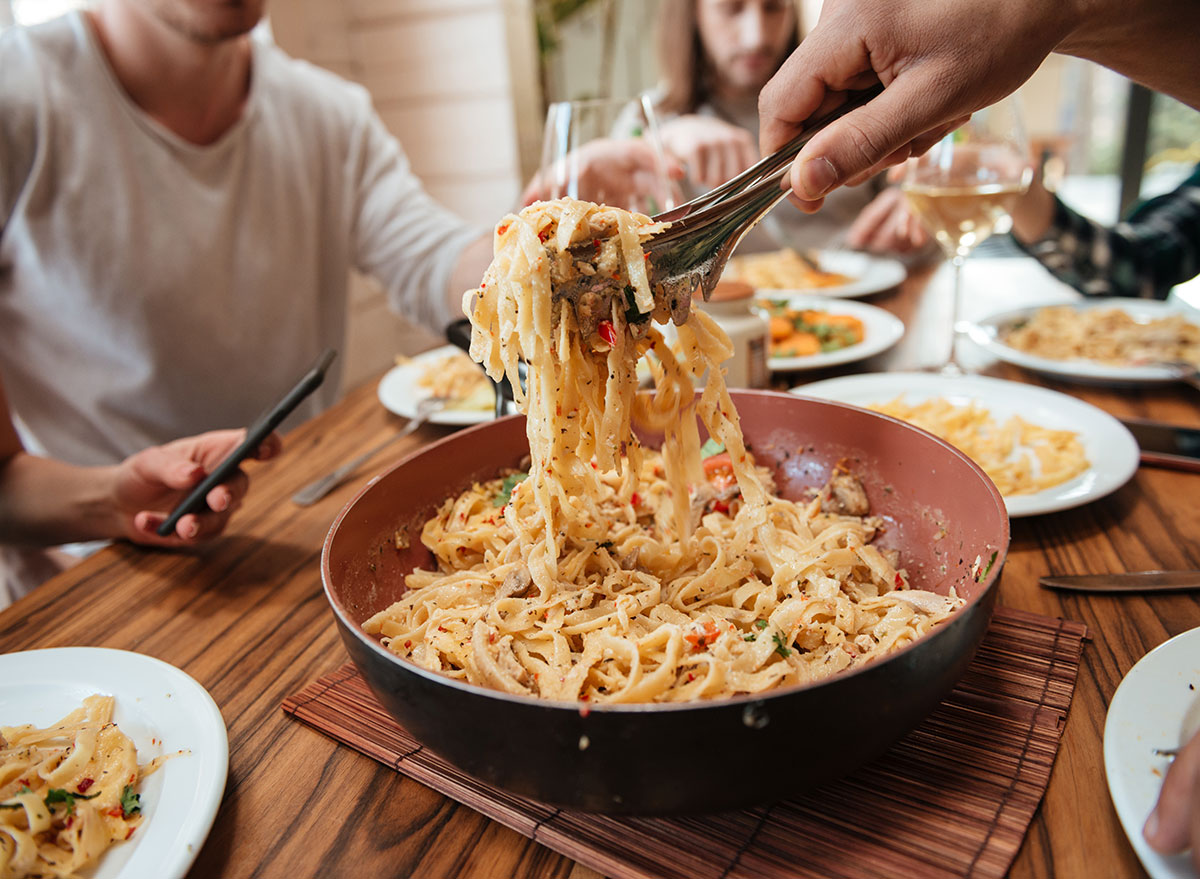
"I think it's super important to have the right portion size," explains Behnaz Behmanesh, DO, a triple board-certified obesity and family physician. "You can eat food that is considered healthy but if you have too much of it, is it really still so healthy? Probably not."
Don't eat foods high in saturated fat.

"Choosing foods high in saturated fat (high-fat protein sources and high-fat dairy products) can lead to high cholesterol levels," says Janette Bedoyan, RD, a registered dietitian at CHA Hollywood Presbyterian Medical Center. "A high blood cholesterol level can lead to a buildup of plaque in your arteries, which can increase your risk of heart attack." Some popular foods that are high in saturated fat include butter, baked goods, and fatty cuts of meat. (Related: Popular Foods That May Lead to a Heart Attack, According to Science.)
And skip trans fats.
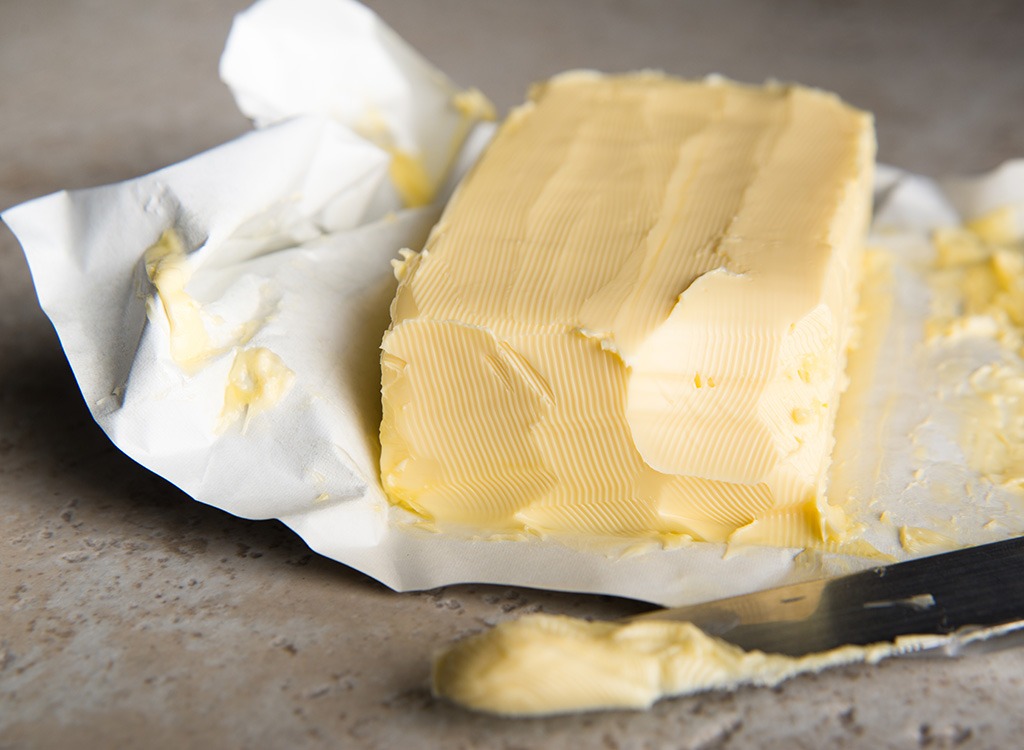
"Trans fats should be consumed as infrequently as possible," warns Amanda Baker Lemein, MS, RD, Golin Director of Nutrition. "Trans fats not only increase LDL ('bad') cholesterol but also lower HDL ('good') cholesterol."
Quit avoiding healthy fats.
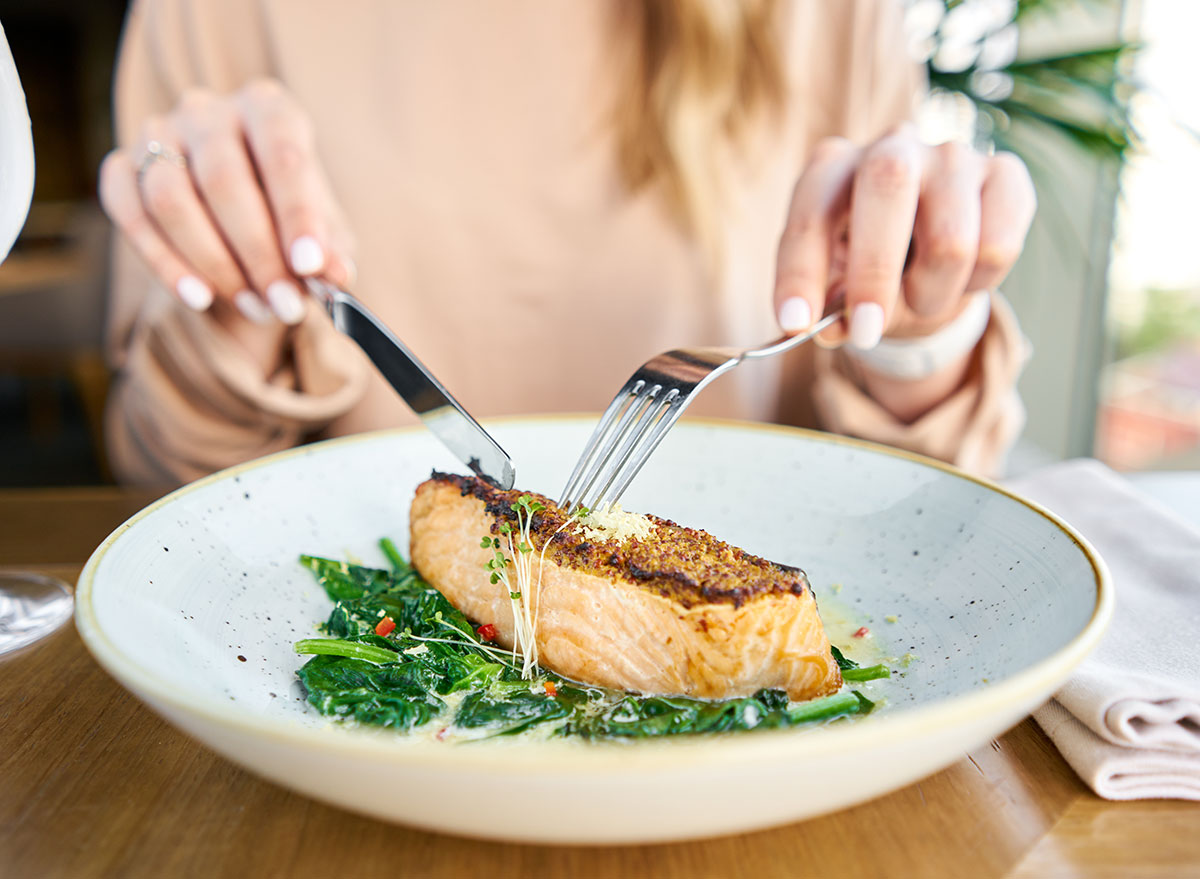
Contrary to popular belief, not all fats are bad, especially when your heart is concerned. "A lot of people avoid eating seafood like prawns, mussels, salmon, and other fatty fish because they're worried about getting high cholesterol levels," explains Valentina Duong, RD, a registered dietitian specializing in heart health and body recomposition.
"While there is a small amount of cholesterol in these foods, it's not enough to affect your cholesterol levels. Instead, seafood has healthy omega-3 fats that help protect your heart. The healthy fats in seafood increase your HDL cholesterol (the good kind) that goes around your body and collects LDL cholesterol (the bad kind that clogs up your arteries)," she adds. "It eliminates the unhelpful LDL cholesterol from your body."
This is why Duong suggests you add some healthy fats to your diet. "Aim for two to three pieces of fatty fish or seafood a week to help protect your heart from a heart attack," she says.
Avoid refined grains.
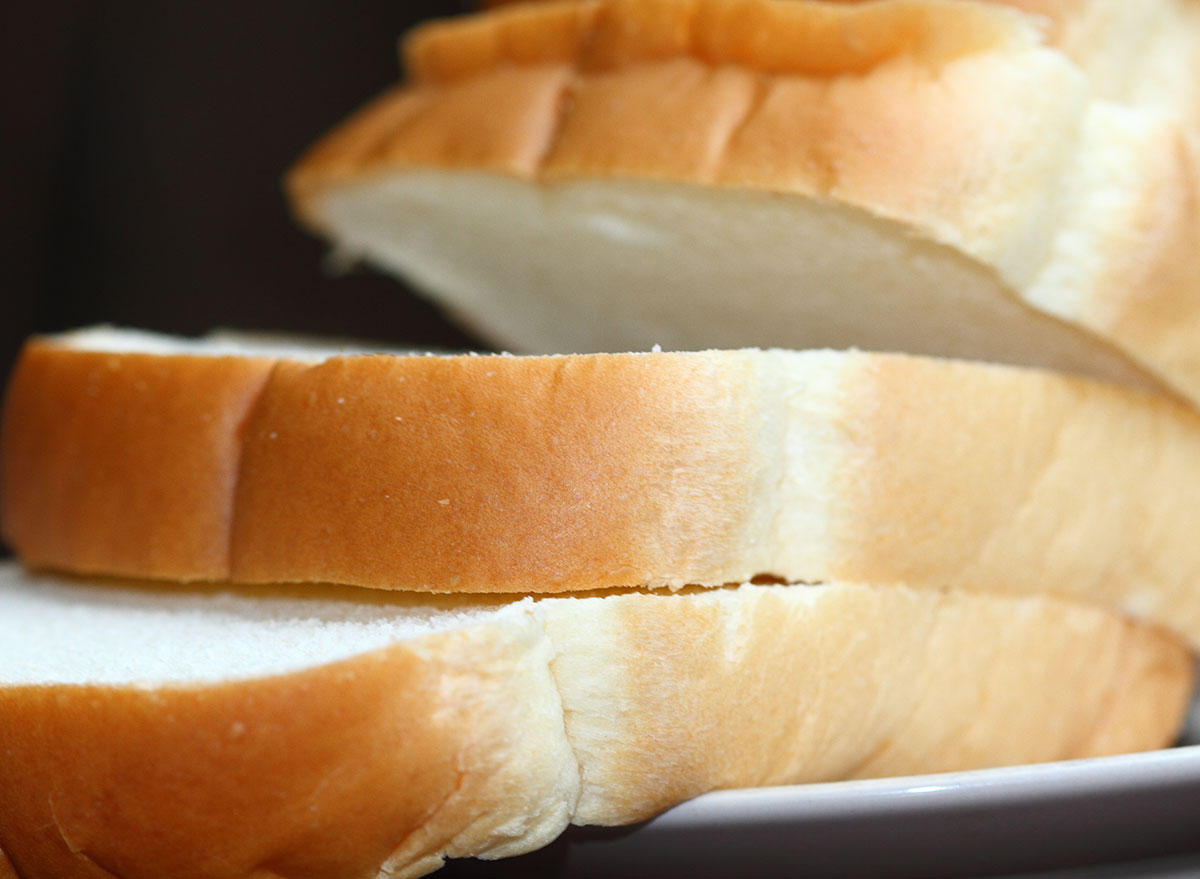
Refined grains, like white bread, are linked to obesity and many metabolic diseases because of their high carb content, but whole grains are a different story. "Whole grains are full of fiber and other nutrients that are important for controlling blood sugar and preventing heart disease," says Behmanesh. (Related: One Major Side Effect of Eating Bread, Say Dietitians.)
Steer clear of the sweets.

"Research has taught us that a diet high in added sugars increases the risk for heart disease, even in normal-weight individuals," says Wirtz. "Sugar-sweetened beverages such as soda, energy drinks, and sports drinks are some of the largest contributors to added sugar intake for the standard American, but certainly sweets, pastries, candies, cookies, frozen yogurts, ice cream, sweetened cereals are large contributors as well. If you are looking to hone in on your added sugar intake, the American Heart Association encourages women to keep intake under 100 calories of added sugar per day and men under 150 calories."
She adds: "I would recommend regularly including fruit, which is rich in natural sugars but also dietary fiber, when your sweet tooth kicks in. Fruit is a much more nutritious, nutrient-dense option than processed sweets."
Don't over-salt your food.
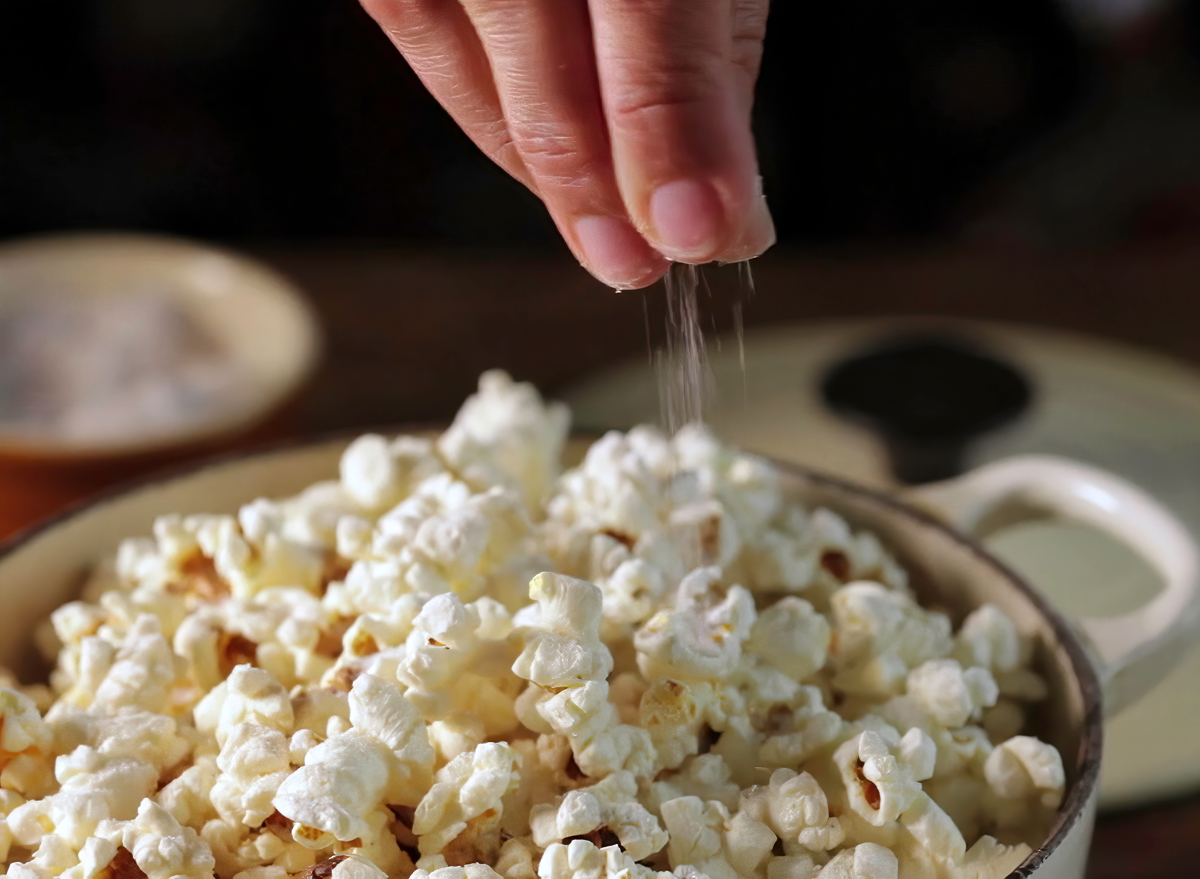
"According to the Centers for Disease Control, sodium intake from mostly processed foods and restaurant dining contributes to high rates of blood pressure, heart attack, and stroke," says Wirtz. "Sodium restriction can mark vast improvements in blood pressure, and lowering blood pressure helps to reduce the risk of heart attacks and stroke."
She continues: "As a dietitian, I recommend that clients season and add flavor to their food with fresh herbs and spices versus overly relying on salt to add flavor." And if you're eating out, consider ordering these 19 Best Low-Sodium Fast Food Orders, According to Dietitians.

